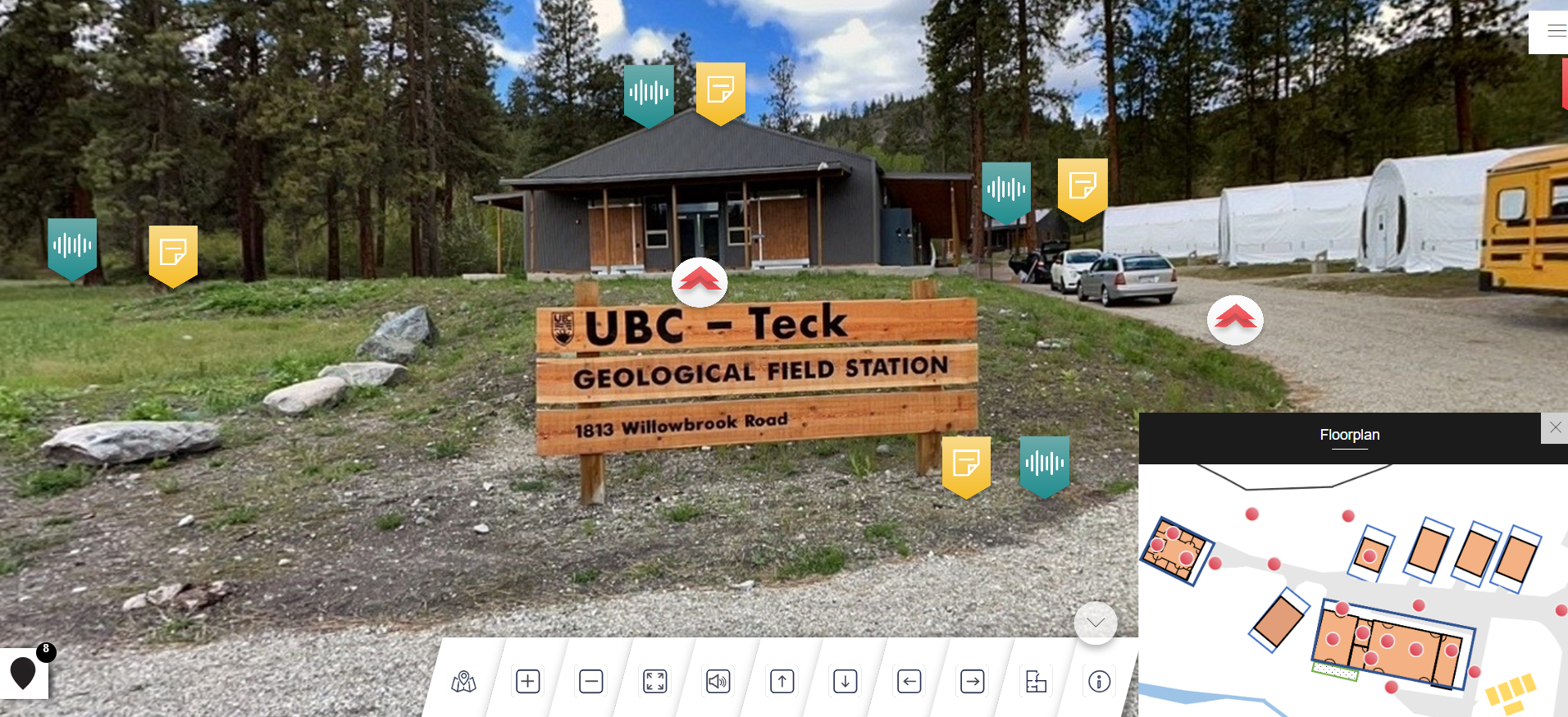The UBC – Teck Geological Field Station
Newly renovated in 2021 to support field learning and research in BC's Okanagan Valley.
News
- Geology Field School in the Okanagan – A Fabulous Time Mapping Rocks (2025)
- Geology Field School in the Okanagan – Three Weeks of Mapping Successfully Completed (2024)
- First field school at the new UBC – Teck Geological Field Station (2022)
- UBC unveils $2.4-million expansion of geology field school in south Okanagan (2022)
- UBC Geology Field School in the Okanagan (2019)
Take a Virtual Tour of our Facilities!
Click on the image below to take a virtual tour of the field station!
Expansion of the UBC – Teck Geological Field Station
Over the winter and spring of 2020 / 2021, UBC’s Faculty of Science and the Department of Earth, Ocean and Atmospheric Sciences (EOAS) completely rebuilt the UBC geology field station. The new UBC – Teck Geological Field Station is on a 36-hectare site near the town of Oliver in the Okanagan Valley of south-central British Columbia. The property was purchased by EOAS-UBC in 1960 and, since then, has been the base for our senior undergraduate geological field courses. This is an exciting upgrade that we have been looking forward to for some time.
The new facilities will ensure that the geological field school can continue to be based in the southern Okanagan for decades to come. It will also make possible a wide range of new opportunities for both educational and research purposes by UBC and others, in the Earth and environmental sciences.
Students practicing field skills, early May, White Lake field exercise, Okanagan Valley, BC.
Contributors
The UBC – Teck Geological Field Station was funded through generous donations by Teck Resources Ltd, Peter and Maggie Bradshaw, Gordon Davis, and by a significant number of the more than 2000 alumni who attended the geological field school over the last 60+ years.
Facilities
The UBC – Teck Geological Field Station opened in May 2021. The new facilities include:
- The Peter and Maggie Bradshaw Experiential Learning Centre, a 4300 ft2 building with a large open-concept teaching/learning/dining space (+ whiteboards, tackboards, AV with drop-down screen, wifi), one smaller conference room, a kitchen equipped with a modern cook station, wash station, fridges, and serving counter, and a large WC/shower block with separate outside access.
- The Gordon Davis Staff Cabin, a 1400 ft2 cabin with a communal work space, 8 individual single-bunk bedrooms, and WC/showers.
- Five exploration-style Weatherhaven shelters on permanent concrete pads that together can accommodate approximately 50 people.
- The Indigenous Voices Collection Mini-Library
The two buildings, including WC/shower facilities, and one of the Weatherhaven shelters, are wheelchair accessible.
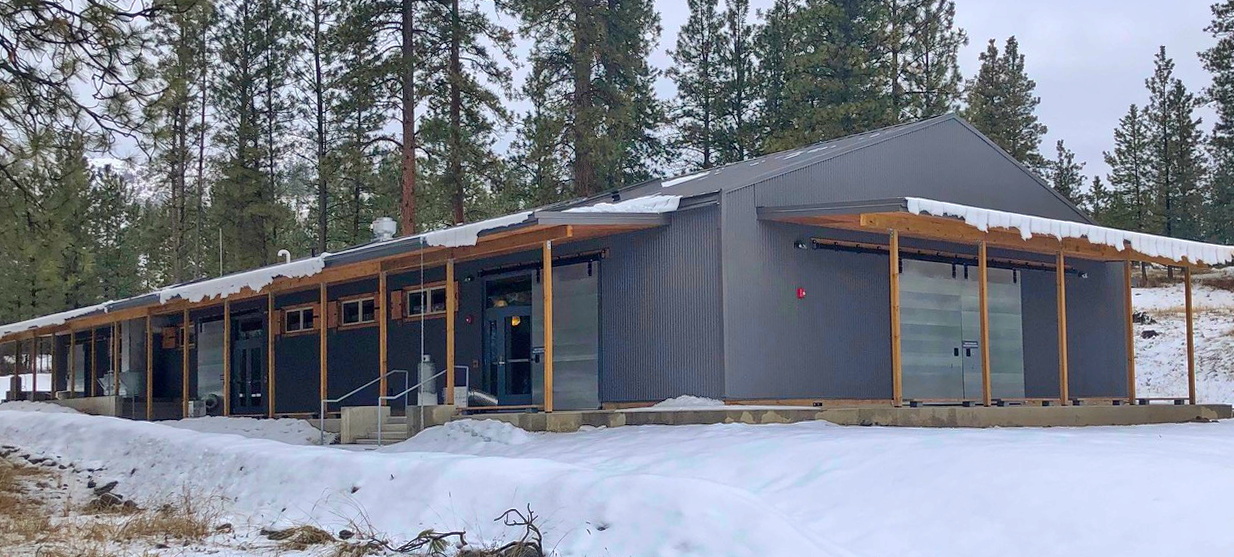
The new Peter and Maggie Bradshaw Experiential Learning Centre
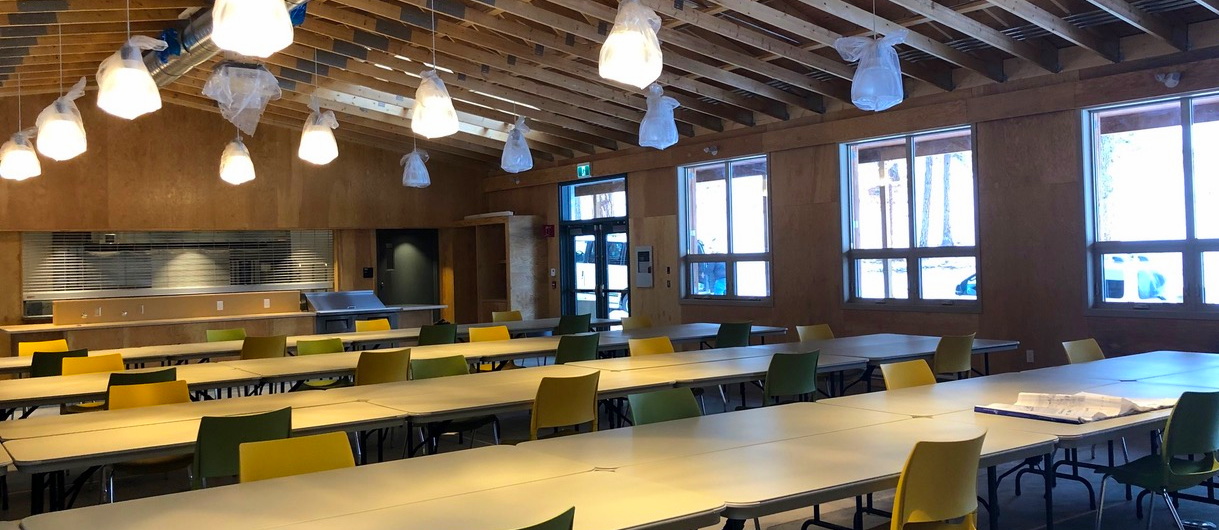
The new, spacious common dining, working and learning space
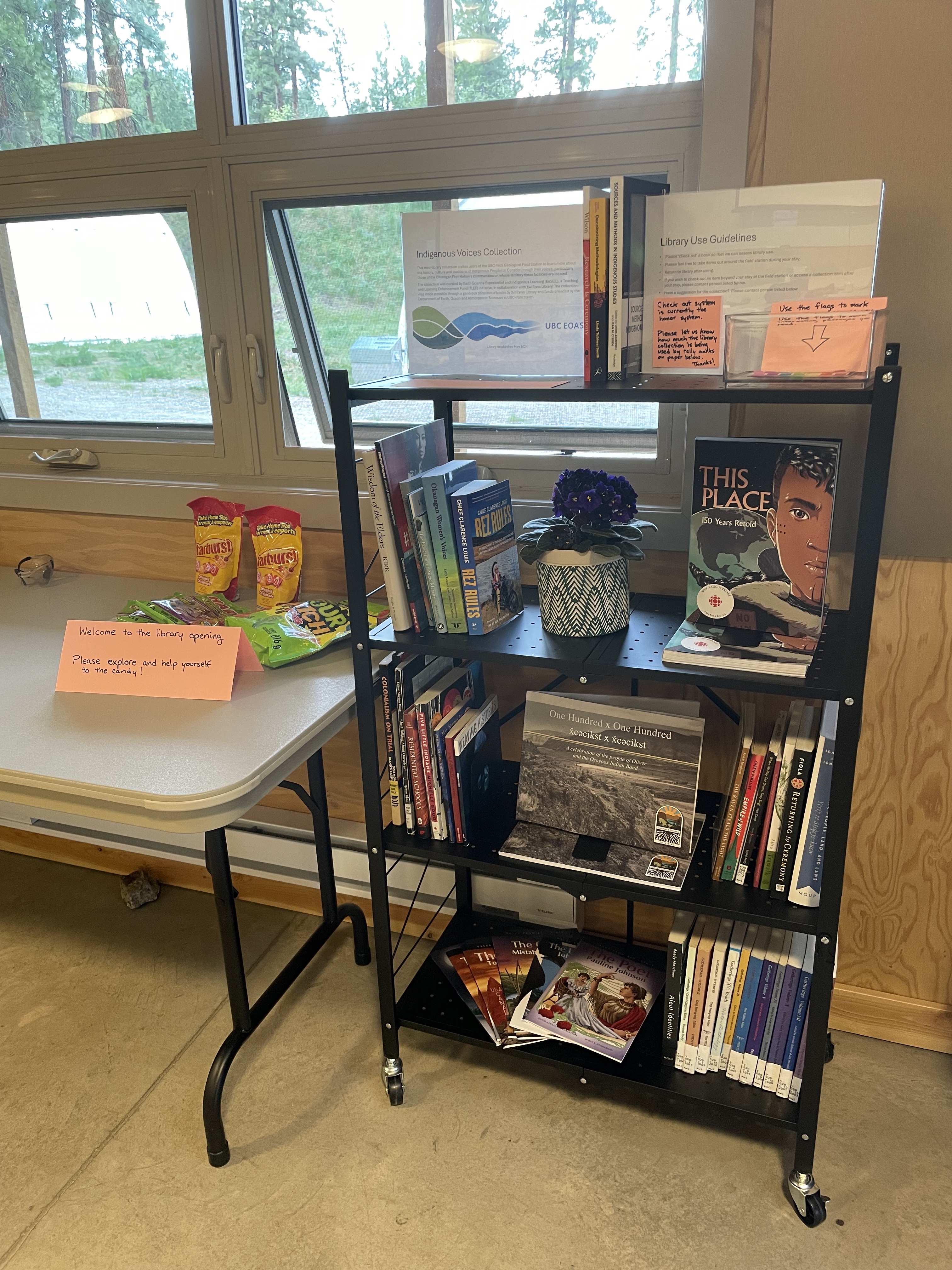
The Indigenous Voices Collection Mini-Library
Opportunities for learning and research
The new field station facilities are designed for 3-season operation (spring, summer, fall). They will provide faculty, students and other visitors with access to world-class field training and research opportunities in the beautiful and majestic southern Okanagan Valley.
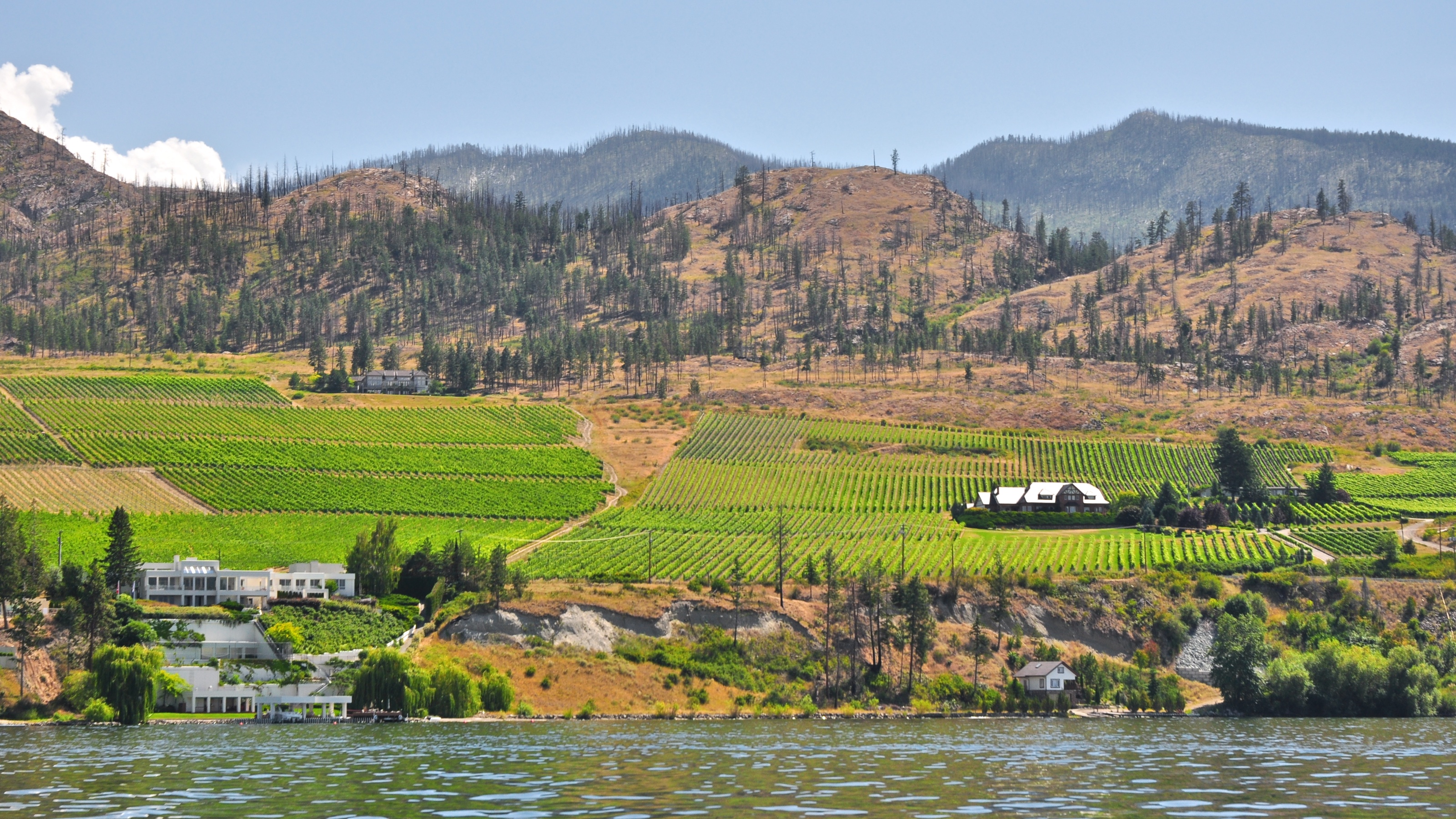
From Wikimedia commons
Credit: Francis Jones
The geographic location of the field station makes it a remarkable laboratory for investigating a wide range of natural sciences, including geology, geological engineering, environmental science, ecology, forestry, soil science, geography, botany, biology, and wine science. It is clearly ideally situated for the promotion of cross-disciplinary research and training. The new field station will likely also be used for workshops, meetings, and retreats, and in support of other research and educational endeavors in the area.
Availability
The UBC – Teck Geological Field Station will be managed by the Department of Earth Ocean and Atmospheric Sciences but will be available to other groups or units at either UBC campus (Vancouver or Okanagan). It will also be made available to other research and/or educational institutions. A daily fee per student/guest will be used to contribute to funds for services, upkeep and maintenance, and an on-site camp caretaker.
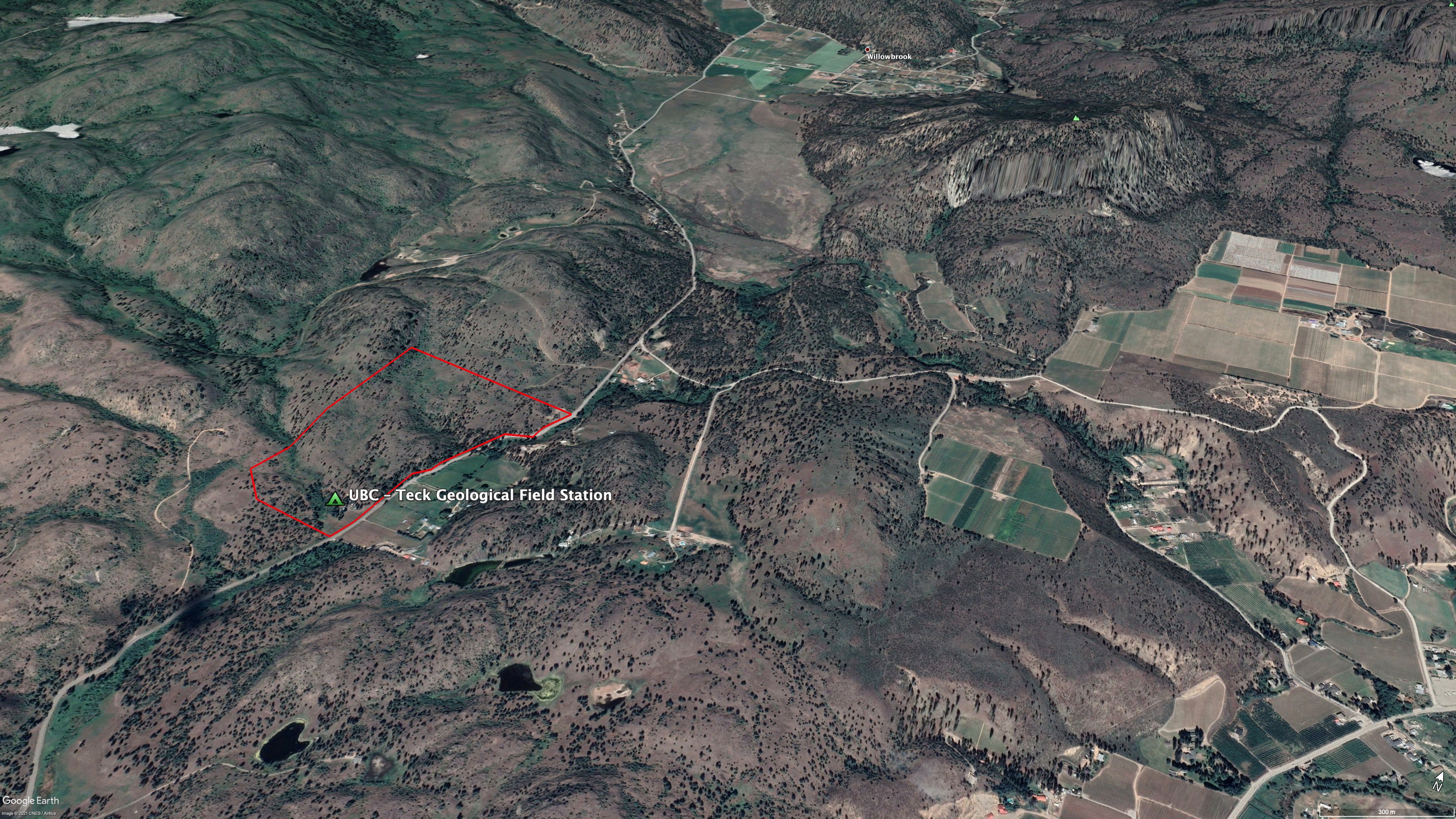
Field station location & Google Earth view over the UBC property a few kilometers north-west of Oliver, BC
More details on the field station, our donors, and the history of geological field training in the southern Okanagan will be coming to the EOAS website soon! For now, please contact TeckFieldStation@eoas.ubc.ca at UBC’s Vancouver campus for more details.
(Written by Prof. Kenneth Hickey, edited and prepared by Francis Jones)

